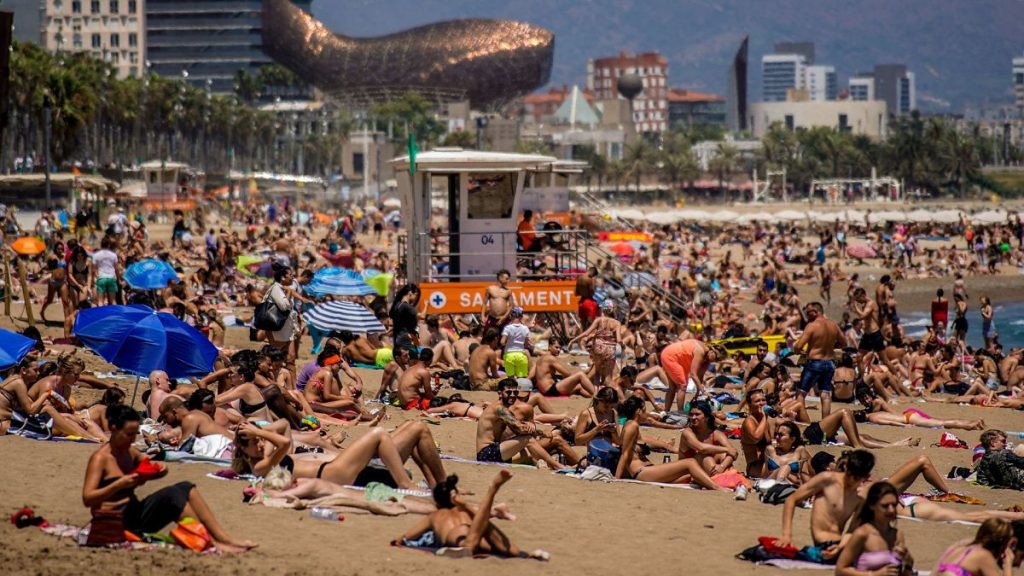Spain is facing challenges with an increase in tourist apartments, which are contributing to overcrowding in cities suffering from overtourism. The government has introduced regulations to limit the number of tourist rentals, but statistics show a nine percent increase in the past year, with over 340,000 now registered. This has led to one tourist rental for every 1.5 square kilometers and for every 139 locals in some cities. The housing crisis in Spain is exacerbating the issue, as rising rents and property prices make accommodation less accessible for locals, particularly young people who are forced to live with their families into their 30s. Airbnb-style apartments are driving up market prices and reducing available properties for locals.
Barcelona recently announced its intention to eliminate all tourist rentals by 2028, a move that has been welcomed by some locals who have experienced issues with overcrowding and disruptive behavior from tourists. However, foreign residents are not convinced that eliminating tourist rentals will solve the housing crisis, as they believe the focus should be on building more housing rather than restricting rentals. Other cities in Spain, such as Madrid, Valencia, Seville, and Malaga, are also taking steps to clamp down on tourist apartments by suspending new licenses or introducing restrictions on operating in certain areas.
Many residents and experts in Spain recognize the importance of tourism to the economy but also acknowledge the need to address the housing crisis and find a balanced solution. Some argue that eliminating tourist apartments could hinder locals’ ability to benefit from tourism, but data shows that the majority of tourist rentals are owned by big businesses rather than individuals. While these measures are seen by some as a step in the right direction, they may not be enough to fully address the issues at hand. Locals believe that sustainable tourism practices, such as supporting small businesses and staying in hotels, could help alleviate some of the negative impacts of overtourism.
The mixed response to the ban on tourist apartments in Barcelona reflects the complex nature of the issue, with some residents welcoming the crackdown as a way to address rising rents and disruptive behavior from tourists, while others are skeptical about the effectiveness of such measures in solving the housing crisis. Foreign residents in Barcelona express concerns about noise and disruptive behavior from tourists, but also question whether eliminating legal rentals will only drive the market underground and exacerbate the issue. The focus on building more housing to address the root cause of the housing crisis is seen as a more sustainable solution in the long term.
Overall, the increase in tourist apartments in Spain has led to issues of overcrowding, rising rents, and housing affordability for locals. The government and cities are implementing measures to regulate and restrict tourist rentals to address these challenges, with some cities, such as Barcelona, taking more drastic steps to eliminate them entirely. While there is recognition of the importance of tourism to the economy, there is also a need to find a balance that ensures that locals can access affordable housing while still benefiting from the tourism industry. Sustainable tourism practices and a focus on building more housing are seen as crucial steps towards addressing the housing crisis and ensuring a more livable environment for residents in Spain.









